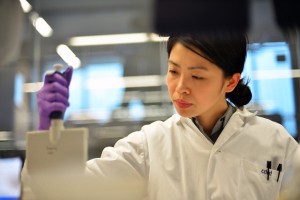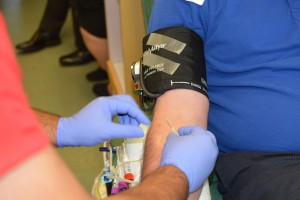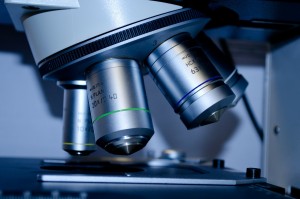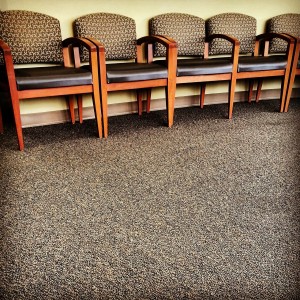- Calls to this hotline are currently being directed to Within Health, Fay or Eating Disorder Solutions
- Representatives are standing by 24/7 to help answer your questions
- All calls are confidential and HIPAA compliant
- There is no obligation or cost to call
- Eating Disorder Hope does not receive any commissions or fees dependent upon which provider you select
- Additional treatment providers are located on our directory or samhsa.gov
ANGI Study and UNC Center for Eating Disorders
 Countless researchers and scientists have dedicated their lives and careers to the understanding of eating disorders and the advancement of treatment options. With eating disorder sufferers having so much at stake and much to lose in their struggle against these vicious diseases, research is in fact crucial to producing life-saving treatments and bringing home to many individuals, families, and loved ones.
Countless researchers and scientists have dedicated their lives and careers to the understanding of eating disorders and the advancement of treatment options. With eating disorder sufferers having so much at stake and much to lose in their struggle against these vicious diseases, research is in fact crucial to producing life-saving treatments and bringing home to many individuals, families, and loved ones.
While many different research studies and trials have been executed, current research is changing the frontier of the future. One scientist in particular in leading her team on a one of a kind research study that is seeking to understand the genetic component that contributes to anorexia nervosa. Dr. Cynthia Bulik and her team at the University of North Carolina Center of Excellence for Eating Disorders have embarked on the research study known as ANGI, or the Anorexia Nervosa Genetics Initiative.
What is ANGI?
 What exactly is the ANGI study and the significance of this research? To date, the ANGI study is the largest and most thorough genetic investigation of eating disorders that has ever been conducted. Spanning on a global scale, the ANGI study involves researches from the United States, Australia, Denmark, and Sweden and will collect clinical information and blood samples from over 8,000 individuals. Participants in this study are both those who have had anorexia nervosa as well as individuals who have not had an eating disorder [1].
What exactly is the ANGI study and the significance of this research? To date, the ANGI study is the largest and most thorough genetic investigation of eating disorders that has ever been conducted. Spanning on a global scale, the ANGI study involves researches from the United States, Australia, Denmark, and Sweden and will collect clinical information and blood samples from over 8,000 individuals. Participants in this study are both those who have had anorexia nervosa as well as individuals who have not had an eating disorder [1].
The intention of this multi-national research study is to better understand the genetic factors that possible contribute to the development of anorexia. While it has been understood for some time that a variety of factors influence anorexia, including both biological and environmental factors, the genetic predisposition of eating disorders is being seen in a new light. Perhaps if we scientists could uncover the exact genetic variations that make a person susceptible to developing anorexia, treatment or prevention methods could be advanced for those who are suffering.
 The ANGI research has sought to do this very thing by collecting, analyzing, and comparing blood samples of individuals who have anorexia to those who do not have this disease. Comparing the DNA of anorexia sufferers to those without this mental illness can give insight into the genetic variations that exist. For a disease that is life-threatening, finding these genetic variations can mean the development of treatment methods that might save the life of a person susceptible to anorexia or who is currently suffering.
The ANGI research has sought to do this very thing by collecting, analyzing, and comparing blood samples of individuals who have anorexia to those who do not have this disease. Comparing the DNA of anorexia sufferers to those without this mental illness can give insight into the genetic variations that exist. For a disease that is life-threatening, finding these genetic variations can mean the development of treatment methods that might save the life of a person susceptible to anorexia or who is currently suffering.
Be Part of the Study
The ANGI research study is still underway and is currently seeking out participants. Even if you have not personally struggled with anorexia or another eating disorder, your contribution to this groundbreaking study can be an invaluable part of the solutions and answers that are being sought!
However you are part of this community, whether as a survivor of anorexia, someone who is currently struggling with this illnesses, a family member of a sufferer, or a friend, your participation in this study can help play an important role in finding answers to a complex and deadly disease. Participation is simple and includes a brief questionnaire and blood sample.
Learn More
 If you are interested in learning more about the ANGI study, led by researcher and scientist Dr. Cynthia Bulik, consider visiting their website found under the University of North Carolina Center of Excellence for Eating Disorders. You can find out how to specifically be a participant in this study as well as stay current with the progress being made through reported updates. Spreading the word about important research studies in the eating disorder community, such as the ANGI study, can help support the endeavors of the researchers and scientists who have dedicated their lives to finding answers and solutions to this deadly disease. There is hope on the horizon, and you can be part of the solution!
If you are interested in learning more about the ANGI study, led by researcher and scientist Dr. Cynthia Bulik, consider visiting their website found under the University of North Carolina Center of Excellence for Eating Disorders. You can find out how to specifically be a participant in this study as well as stay current with the progress being made through reported updates. Spreading the word about important research studies in the eating disorder community, such as the ANGI study, can help support the endeavors of the researchers and scientists who have dedicated their lives to finding answers and solutions to this deadly disease. There is hope on the horizon, and you can be part of the solution!
Community Discussion – Share your thoughts here!
What are you hoping to see come from the research from the ANGI Study and the UNCE Center for Eating Disorders? How do you think research, such as this study, have advanced the understanding of eating disorders?
References:
- ANGI – Anorexia Nervosa Genetics Initiative, http://www.med.unc.edu/psych/eatingdisorders/our-research/angi Accessed 20 July 205

